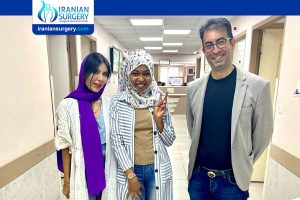Plastic Surgery in Iran
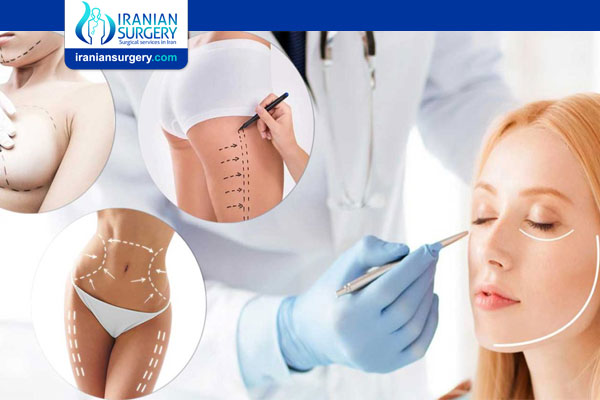
Best plastic surgeons and Hospitals in Iran
Cosmetic Surgery in Iran
These days, cosmetic surgeries have become so popular that many surgeons are working in this field. However, the choice of surgeon depends on many factors such as the surgeon’s skill, the costs of the operation and hospital. The Iranian Surgery medical team consists of skilled physicians (all of whom have at least 15 years of experience) and all operations are performed in specialized hospitals.
The importance of choosing the right plastic surgeon in Iran
Facial and body cosmetic surgeries are one of the most popular surgeries in the world, which are performed with the aim of improving the appearance of the face and body shape. Every year, many people from different countries travel to Iran for cosmetic surgeries and their biggest concern is finding the best plastic surgeon in Iran. We will help you find the best plastic surgeon in Iran and we will also put experienced Iranian cosmetic surgeons in direct contact with you.
If you do not have accurate and complete information about facial and body cosmetic surgeries, the Iranian Surgery medical team has provided patients with complete and comprehensive information about these surgeries in a video.
Iran: The Cradle of Beauty Surgeries
Due to the large number of cosmetic surgeries being performed every year, doctors have been able to gain considerable experience in this area. Iran, as an age-old cultural and medical hub, has managed to become a center for all sorts of operations, especially cosmetic surgeries, which can be attributed to the high experience of its doctors, very high quality and low cost of medical services, use of the most up-to-date techniques and technologies, and most importantly, a high percentage of customer satisfaction.
But these are not the only reasons. Iran, with its abundance of tourist attractions and gorgeous landscapes, has been able to provide a suitable atmosphere for all patients so that, along with receiving medical services, they can enjoy the beauties surrounding them and experience a lovely and pleasant trip.
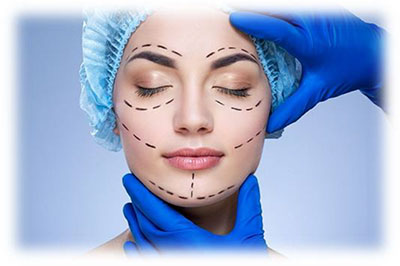
What are the most popular plastic surgeries in iran at 2022?
Here we will provide you the 10 most popular plastic surgeries in iran along with their cost :
Operation and Cost
1-Rhinoplasty 1400 $
2-Eyelid 1000 $
3-Liposuction 1500 $
4-Brazilian Butt Lift 1500 $
5-Hair Transplant 700 $
6-Full Face Lift 3000 $
7-Buccal Fat Removal 1000 $
8-Jaw Line V shaping 3000 $
9-Forehead Reduction 2000 $
10- Cat Eye 1500 $
In this section, you can see a list of the most common surgeries in Iran.
Beauty Services for Women:
- Rhinoplasty : Open rhinoplasty and close rhinoplasty
- Revision rhinoplasty
- Septoplasty
- Bulbose rhinoplasty
- Cheek lift
- Eyebrow lift
- Eyebrow transplant
- Cheek augmentation
- Face lift
- Neck lift
- Buccal fat removal
- Lip augmentation
- V Line Jaw Surgery
- Jaw line liposuction
- Chin implant
- Fillers for face
- Temple lift
- Forhead reduction
- Belapharosty
- Canthoplasty (cat eye)
- Fat transfer below the eye
- Liposuction :Full liposuction 360
- Arm lift
- Thigh Lift
- Dimple creation surgery
- Tummy tuck/Abdominoplasty
- Lipomatic
- Brazilian Butt Lift
- Butt lift with implant
- Breast implant
- Breast implant with Patient’s Fat
- Breast reduction
- Breast lift
- Hair transplant
- Otoplasty
- Botax
- Hair transplant
- Vaginoplasty/Labioplasty
- Dental veneers
Our Beauty Services for Men:
- Rhinoplasty : Open rhinoplasty and close rhinoplasty
- Revision rhinoplasty
- Septoplasty
- Bulbose rhinoplasty
- Cheek lift
- Eyebrow lift
- Eyebrow transplant
- Cheek argumentation
- Face lift
- Neck lift
- Buccal fat removal
- V Line Jaw Surgery
- Jaw line liposuction
- Chin implant
- Fillers for face
- Temple lift
- Forhead reduction
- Belapharosty
- Canthoplasty (cat eye)
- Fat transfer below the eye
- Liposuction :Full liposuction 360
- Arm lift
- Thigh Lift
- Dimple creation surgery
- Abdominoplasty
- Lipomatic
- Hair transplant
- Otoplasty
- Botax
- Hair transplant
- Gynecomastia
- Dental veneers
Here at Iranian Surgery, we will help you choose the best cosmetic surgeon and the most equipped hospitals in Iran. The following is the list of hospitals in Tehran and Shiraz that our medical team performs in:
Ordibehesht Hospital
Mir Hosseini Hospital
Kowsar Hospital
Bazarganan Hospital
Below, we have provided a description of all the surgeries performed in the Iranian Surgery team. To find out more about each operation just click on the provided link.
Why Iran?
Cosmetic surgery is very influential with comes to a person’s daily life. Many applicants decide to do these operations every year in order to achieve their desired look and lead their lives in the form and manner they want. In performing cosmetic surgeries, due to its direct impact on daily life, the choice of surgeon, the quality of work, medical services, and finally the cost are among the important factors that must be considered.
Since Iran tick all the boxes among the above list, it has always been able to play a significant role in providing the best services to applicants at home and abroad. Although cosmetic surgery in Iran is less than 50 years old, every year, a large percentage of cosmetic surgeries in the world are performed in Iran.
Nowadays, you can access the name of thousands of surgeons around the world with a simple search, but unlike in the past, the name of the surgeon and the hospital is no longer the most decisive factor when it comes to choosing your surgeon. These days the end-result of a surgeon’s work and the medical services they offer following a surgery and finally the cost of these services are what will help you finalize your decision.
Here at Iranian Surgery, we can help and accompany you through the process of selecting the best surgeon and specialist and the most suitable hospital and medical service center. We are always striving to provide the best results, the highest quality medical services and consequently the most reasonable cost for you.
Enjoy our latest and best services just by sending an email or a message to our WhatsApp.
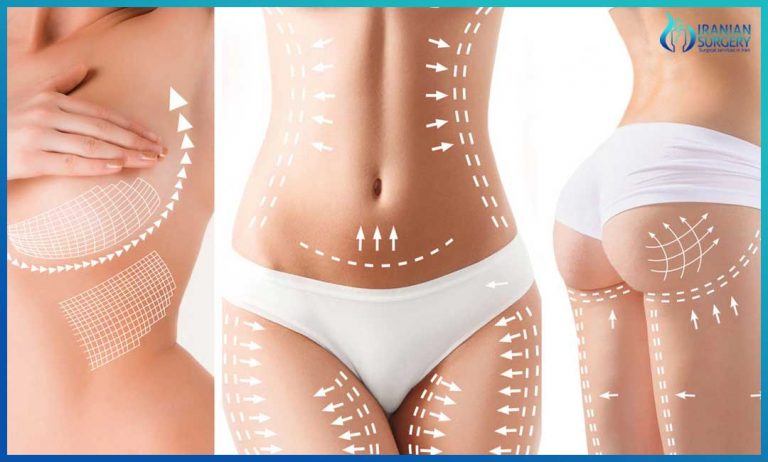
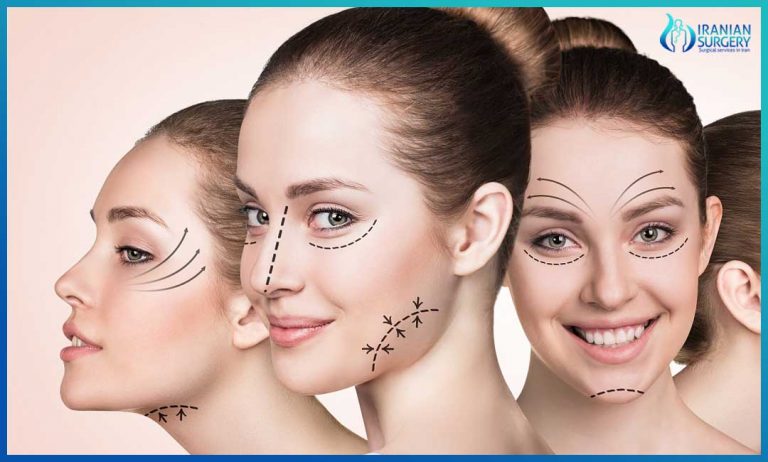
Free Consultation
People also ask about Plastic Surgery in Iran
Hi, Yes you can do that in Iran. If you want to have them all together in one session of surgery, you have to have a plastic surgeon specialist. You can not go under two general anesthesias so close to one another. The surgeries you mentioned can be done at the same time in Iran. Sometimes we take caution when one of the facial surgeries is Rhinoplasty
Yes. Both of these surgeries can be done in one operating room and with one cosmetic specialist and one general anesthesia. You can also have a bbl and Arm or thighs liposuction added up to your surgeries list. Some of our specialists in Iran suggest that because Tummy Tuck is very painful after it is done, maybe it is better if you just do one surgery at a time. But, this does not mean it's impossible.
How much does plastic surgery cost in Iran?
Prices for Plastic Surgery in Iran:
Rhinoplasty: $1500_ $2100
Liposuction: $2200_$3800
Tummy tuck: $2200_$4500
Face lift: $1500_3500
Cheek implants: $2000
Buccal fat removal: $700
Eyelid: $800_1600
Breast augmentation: $1700_2000
Breast implant: $2000
Breast reduction: $1700
Breast lift: $1700
Revision rhinoplasty: $1800
Male breast reduction: $1500
BBL(Buttock lift): $1500_2500
Vaginoplasty: $800_2000
Labiaplasty: $1500
Cat Eye: $1500
Arm Lift: $1000
Eyebrow lift: $1500
Neck Lift: $600_1000
Forehead Reduction: $2200
jaw surgery in iran: $3500
Dimple Creation Surgery : $800
Thigh lift: $800_2000
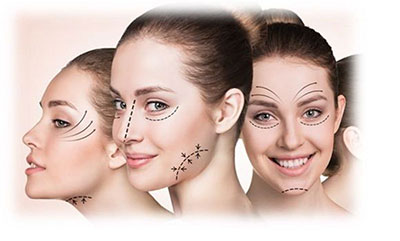
Why Iranian Surgery?
Iranian Surgery is a medical tourism company in Iran that cooperates with the best Cosmetic surgeons, specialists and hospitals in Iran and offers world-class treatments at an affordable cost.
For more information about the cost of your plastic surgery in Iran and to schedule an appointment in advance, you can contact Iranian Surgery consultants through WhatsApp number 0098 901 929 0946. This service is completely free.
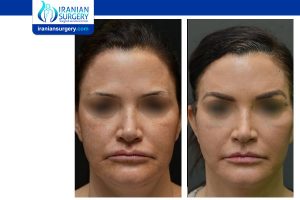
How to make sure you have the best plastic surgeon
What kinds of questions should you ask a potential plastic surgeon to ensure that you end up in the best possible hands? Read on to find out.
- Find a Professional who Specializes in what you Want
It’s not exactly a secret that there are lots of high-quality and experienced plastic surgeons in Iran and particularly in Shiraz and Tehran. However, you want the best plastic surgeon for the specific procedure that you’re interested in having done.
For example, if your caboose needs a little boost? Look for a plastic surgeon who specializes in Brazilian butt lifts or even butt implants. If you’ve been injured in a car accident and have suffered from facial lacerations, you might want to work with a surgeon who has experience in facial reconstruction surgery.
Usually, these plastic surgeons will advertise their specialties on their website.
This means that they may have access to new and revolutionary procedures and techniques that other plastic surgeons might not have yet. They’ll also likely have hosted lots of industry events, and may even have written studies and articles for plastic surgery journals and magazines.
If you want to work with a specialist, of course, before you start interviewing potential plastic surgeons and meeting for consultations, you’ll need to know exactly what you want.
It’s a good idea to do a bit of research not just when it comes to the best plastic surgeon professionals, but also regarding various procedures. Once you know which ones will give you the results you’re looking for, you can find surgeons that specialize in those areas.
- Ask About their Education and Credentials
If you want to find the best plastic surgeon in Iran, you’ll need to make sure that you’ve asked about their education and experience. Where did they go to medical school? Where did they complete their residency training? For how many years have they been in practice, and about how many cosmetic surgeries have the performed over the course of their career?
Remember that it is your right to ask to see a copy of their diplomas, as well as to verify any sort of certification they’ve received. In addition to their educational background and overall credentials, you should ask whether or not the surgeon you want to work with is a member of any professional organizations or associations. This will let you know that your surgeon has an excellent network and that they’re committed to continuing their education in the field of plastic surgery.
Read more about : Rhinoplasty in Iran before and after
Read more about : Liposuction in Iran before and after
Read more about : Facelift surgery in Iran before and after
Read more about : BBL in Iran
- Speak to Past References
So, you think that you’ve finally found the best plastic surgeon for the procedure that you’ve wanted to have done for years.
How do you know?
Because you’ve read tons of glowing online reviews and past patient testimonials. In fact, the surgeon even has an entire section of their website highlighting all the nice things that their patients have said about them.
Hold it right there.
How do you know that actual past patients wrote those reviews? In fact, how do you know that it’s not actually the surgeon themselves writing them from behind their office computer?
When about 15% of all the online reviews out there are fake, there’s only one way to know for sure if what people are saying about a surgeon online is actually accurate. You need to speak with them directly, either in person or over the telephone.
We suggest asking your plastic surgeon to connect you with a minimum of two past references. If at all possible, these references should be people who have undergone the procedures that you’re interested in.
When you speak to these references, make sure you know what to ask them. Start by asking about their overall satisfaction with the work they had done. Have the results lasted? Were there any complications? Was the recovery period accurately described to them? Have they suffered any side effects?
Then, make sure that you ask about the payment plans and fees. Were there any hidden charges, like anesthesia, that were tacked on without being discussed? Was the billing cycle as described? You want to make sure you know what to expect on all fronts.
- Understand the Fee Structure
Although compared to other countries, the prices you will have to pay in Shiraz is much lower, still a cosmetic surgery doesn’t come cheap. And, as we mentioned earlier, shopping by price just isn’t the best or safest way to go when you’re in the market for a qualified and experienced surgeon.
That being said, you want to know what sort of fee structure and payment plan you’re getting into. You also want to ensure that you can truly afford the procedure that you’d like to have done. You need to be aware that the majority of plastic surgeons do not accept health insurance as a viable payment method. If you’re having plastic surgery in order to help to correct a medical issue, like trouble seeing or breathing, there may be exceptions to this rule.
Still, you need to manage your expectations when it comes to your pipe dream of having your insurance company pay for your breast augmentation. This means you’ll need to clearly understand the total cost of your surgery, and how that fee is collected.
The costs can cover the surgery itself, the anesthesia, the follow-up appointments and consultations, and much more. In some cases, you’ll also need to pay the price of the implants.
Some surgeons will require you to pay in a lump sum, while others will bill you on a monthly basis. Make sure you know exactly how much you’ll likely be paying each month before you decide to go ahead with any procedure.
- Schedule a Consultation
If you really want to know whether or not you’ve truly found the best plastic surgeon for you in Iran, you’ll need to meet with them for a consultation.
This will help you to get a handle on whether or not you’re actually eligible for the procedure of your dreams. You’ll also be able to much better evaluate the overall level of care you can expect to receive from your plastic surgeon. Make sure that the surgeon can very clearly explain the risks and possible results of what you want to have done. They should be able to provide you with the worst-case scenario, as well as how you can expect to look.
Keep in mind that a good surgeon won’t make promises that they can’t deliver on. If you feel like your surgeon is promising you expectations that go beyond your wildest dreams, then you have every right to be suspicious.
You should also ask about the overall recovery period that comes with the procedure you’re considering. Do you need to take a leave of absence from work? Will you be able to drive yourself home after the procedure? How many days, if any, will you need to stay in a hospital afterward? What about asking a friend or family to care for you after the surgery? Most of all, will the surgery be able to be finished in one session? Or, is this the kind of procedure that will require you to make multiple trips to the plastic surgeon?
These are all things you need to know before you make a life-altering — and often, expensive — decision.
It might sound silly to some people, but you do need to consider whether or not you actually like and get along with your plastic surgeon. If you feel like there’s a disconnect between your communication style and your surgeon’s, you may want to move on.
- Check out Their Portfolio
The final step in making sure that you choose the best plastic surgeon possible, whether in Shiraz or any other city in Iran?
Make sure that you take the time to look through their portfolio, otherwise known as a patient gallery. This will help you to manage your expectations, and to see how the results look on other people. In short, it’s the best way to get to know the overall quality of a plastic surgeon’s work. This is one of the most important steps that you can take when it comes to effectively evaluating a potential plastic surgery professional.
Read more about : This patient came to Iran from Kenya for 4 major cosmetic Surgeries, including Brazilian butt lift, Buccal fat removal, Breast Lift and Liposuction.
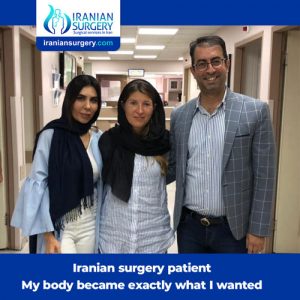
Read more about : The German patient saved $ 14,000 by choosing Iran over Germany to have stomach liposuction and abdominoplasty surgery.
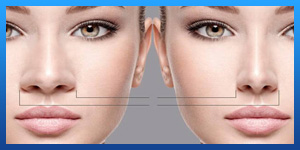
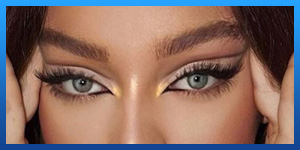
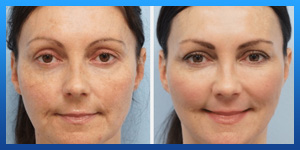
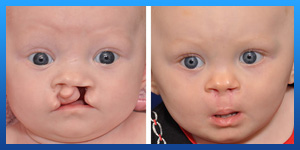
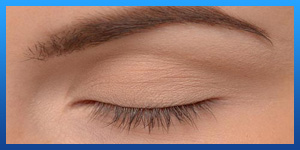
The following table provides information on various cosmetic procedures:
Table of Contents
Plastic surgery in Iran before and after
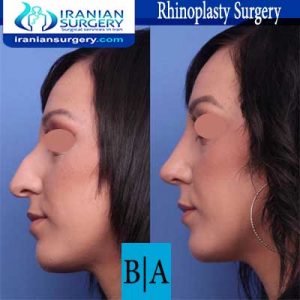
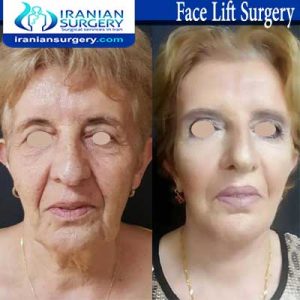
Face and body cosmetic surgery with Iranian Surgery cosmetic experts.
Iranian Surgery cosmetic surgeons are leading in performing various cosmetic and plastic surgeries, including facial and body cosmetic surgeries, and have a lot of experience in performing various cosmetic and reconstructive surgeries.
In Iranian surgery, plastic, cosmetic and reconstructive surgery is performed by 6 professional plastic surgeons who specialize in performing various cosmetic and reconstructive surgeries, including facial cosmetic surgery, breast cosmetic surgery, body cosmetic surgery, facial reconstructive surgery and skull surgery.
In addition, we work with the most specialized surgeons in the field of skin, ear, nose and throat, head and neck and maxillofacial surgery who specialize in reconstructive and cosmetic surgeries.
Plastic surgery in Iran Review (Video)
- A patient who came from Australia to Iran for Rhinoplasty
- A patient who came from USA to Iran for Liposuction and abdominoplasty surgery
- A patient who came from UK to Iran for Lipomatic with bbl surgery
- A patient who came from USA to Iran for Abdominoplasty and breast reduction and breast lift surgery
- A patient who came to Iran for Blepharoplasty
Best plastic surgeon in Iran for facial cosmetic surgery

Dr. Mosleh
Rhinoplasty Surgeon in Iran Shiraz

Dr. Shahoon
Rhinoplasty Surgeon in Iran Tehran

Dr. Boroumand
Rhinoplasty Surgeon in Iran Tehran
How can I find the best plastic surgeon in Iran?
All you need to know about Plastic and cosmetic surgeons in Iran
Who is the best plastic surgeon in Iran?
The high experience of cosmetic surgeons on the one hand, and the affordable cost of cosmetic surgeries on the other hand, has made Iran the first destination for cosmetic surgeries.
Iranian cosmetic surgeons have performed the highest quality cosmetic surgeries in the well-equipped clinics and hospitals in Iran at the lowest cost.
If you decide to have a plastic surgery in Iran, reading this article can improve your knowledge to a great extent and help you to choose the best plastic surgeons in Iran.
In this article we provide you with a comprehensive description of plastic surgery in Iran, the plastic surgery costs in Iran and the best plastic surgeons in Iran.
Further, this article will explain the cost of the best plastic surgeons in Iran and a comparison has been made between the cost of different plastic surgeries in Iran and other countries.
Nowadays, one of the most popular questions that we face every day is, “How much does a plastic surgery cost in Iran?” For your convenience, here is the average cost of some of the most popular plastic surgeries offered by Iranian plastic surgeons.
Since plastic surgery costs in other countries are so expensive, many people have to postpone their plastic surgeries for a couple of years or consider going abroad instead.
Let us help you discover where is the best place to get plastic surgery in Iran and how can you find the best plastic surgeons in Iran based on your needs and expectations. Making an informed decision will give you the results you want so that you can have a plastic surgery in Iran at an affordable price and without risking your health.
Best plastic surgeons in Iran for body contouring

Dr. Fattahi
Plastic Surgeon in Iran Shiraz

Dr. Afshan Shah
Cosmetic Surgeon in Iran Tehran

Dr. Eyn Abadi
Plastic Surgeon in Iran Shiraz
Our teams of cosmetic surgeons are highly skilled and experienced in performing cosmetic surgeries.
Our cosmetic surgery consultants have tried to provide you with the most comprehensive information about face and body cosmetic procedures.

Dr. Afshan Shah
Plastic and Cosmetic Surgery consultant
Plastic and cosmetic surgery podcast
1.Rhinoplasty surgery Podcast with Dr. Afshan shah
2.Revision Rhinoplasty surgery Podcast with Dr. Afshan shah
3.Liposuction Podcast with Dr. Afshan shah
4.Brazilian Butt Lift Podcast with Dr. Afshan shah
5.Abdominoplasty Podcast with Dr. Afshan shah
_______________________________
Why Iranian surgery?

You need a professional medical tourism facilitator in Iran who can provide you with the best medical services. Fortunately, the size of our group allows us to provide intensive care for each patient. And we would like to inform you that in 2019 and 2020, more than 11,000 patients from 53 countries who planned to have cosmetic surgery in Iran received consultation from Iranian Surgery. Of these consultations, 280 facial cosmetic surgeries (nose job , facelift , Eyelid ,forehead reduction , cat eye surgery , hair transplant ), 148 breast surgeries (Breast implant, breast reduction , breast lift) and 224 Bariatric and liposuction surgeries (Lipomatic , Tummy tuck , Vaser liposuction , Gastric sleeve ,) were performed with complete success under the supervision of the most experienced plastic surgeons in Iran.
For more information about the cost of your plastic surgery in Iran and to schedule an appointment in advance, you can contact Iranian Surgery consultants through WhatsApp number 0098 901 929 0946. This service is completely free.
_____________________________________
Plastic surgery in Iran Before and after photo
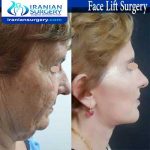
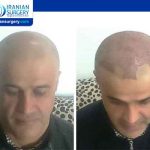
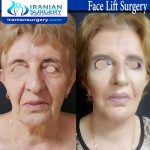
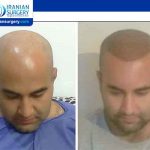
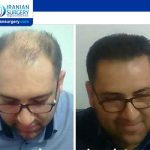
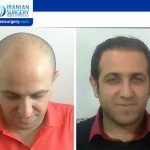
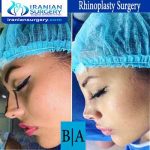
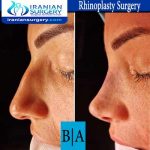
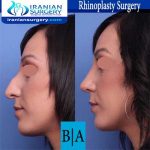
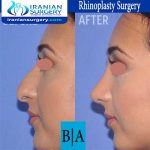
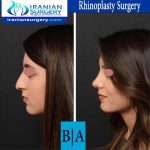
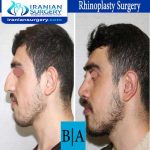
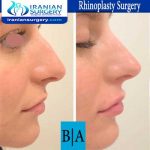
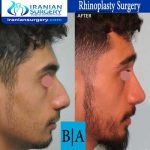
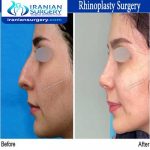
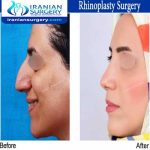
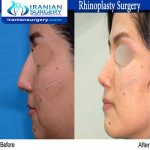
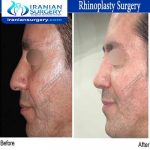
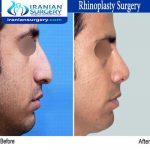
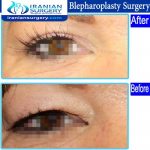
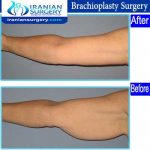
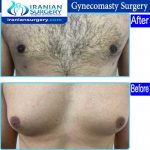
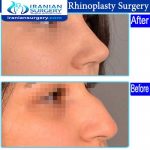
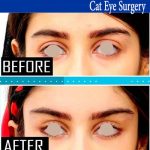
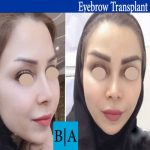
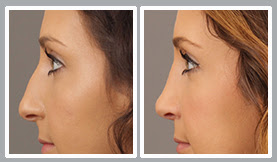
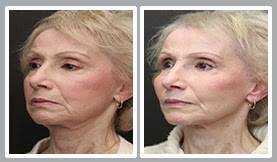
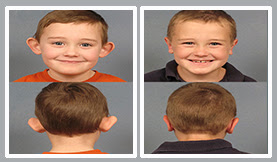
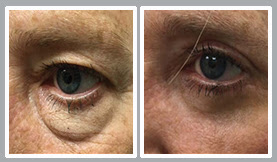
Read more about :
1.Plastic surgery in Iran pictures
2.Facelift surgery in Iran Before and after
3.Rhinoplasty in Iran before and after
Why is Iran a great destination for plastic surgery?
The reasons patients travel to Iran for plastic surgery vary, one of the most important factors is the low cost of treatment stemming from a sharp decline in the Iranian currency in recent years and the second reason is that Surgeons in Iran, have performed numerous procedures annually which make Iranian surgeons more experienced than other countries’ plastic surgeons, due to high demand and low cost of plastic surgeries in Iran, thousands of people travel to Iran every year so that they can undergo a plastic surgery in Iran with the best plastic surgeons at a reasonable price.
About Iranian Surgery
Every day, dozens of people are connected to the most specialized beauty centers in Iran through Iranian surgery health tourism platform, because we only work for patients and do not belong to any medical center and our main priority is your health and beauty after cosmetic surgery. We only recommend cosmetic surgeons who meet the standards of cosmetic surgery and have performed more than a thousand successful surgeries. Therefore, after cosmetic surgery in Iran, you will face the least possible complications.
You can get advice from Iranian surgery consultants via WhatsApp number 00989019290946 or by filling out the form. This service is completely free. Remember that we will support you in all stages of your treatment.
All the cosmetic and plastic surgeries in Iran
- Rhinoplasty
- Liposuction
- Hair transplant
- Revision rhinoplasty
- Face lift
- Fore head reduction
- Lipomatic
- Dental veneers
- Fat transfer
- Jaw surgery
- Cat eye surgery
- Lip augmentation
- Ear pinning
- Blepharoplasty
- Neck lift surgery
- Chin lift surgery
- Abdominoplasty
- Body sculpting
- Arm Lift
- Brazilian Butt Lift
- Breast Lift
- Breast implant
- Male breast reduction ( gynecomastia )
- S-e-x Reassignment Surgery ( s-e-x change )
- Vaginoplasty
- Labiaplasty
- Hair transplant for male
- Breast reduction
- Cleft lip and palate repair
Plastic surgery in Iran Shiraz
The cost of plastic surgeries in Iran Shiraz is lower than other cities of Iran due to lower surgeon’s fee and costs of hospital, moreover, the cost of accommodation is lower than cities like Tehran and Mashhad which can in turn affect the overall cost that a patient should pay.
These are some of the best hospitals in Shiraz:
Shiraz hospitals
1. Mirhoseini Hospital
2. Ordibehesht Hospital
3. MRI Hospital
4. Kowsar Hospital
5. Ghadir Mother and Child Hospital
Plastic surgery in Iran Tehran
The cost of plastic surgeries in Iran Tehran is higher than other cities of Iran due to higher surgeon’s fee and costs of hospital, further, the cost of accommodation is higher than cities like Shiraz and Mashhad which can in turn affect the overall cost that a patient should pay.
These are some of the best hospitals in Tehran:
Tehran hospitals
1. Moheb Kosar Hospital
2. Imam Khomeini Hospital
3. Ebnesina Hospital
4. Parsian Hospital
5. Pasteurno Hospital
6. Kasra Hospital
7. Treata Hospital
Plastic surgery in Iran Mashhad
The cost of plastic surgeries in Iran Mashhad is as high as Tehran but the quality is lower compared to Tehran and Shiraz, furthermore because it is a popular religious city attracting flood of tourists yearly, the cost of accommodation is higher than cities like Shiraz and Tehran which can in turn affect the overall cost that a patient should pay.
These are some of the best hospitals in Mashhad:
Mashhad Hospitals
1. Imam Reza Hospital
2. Mehregan Hospital
3. Hashemi Nezhad Hospital
4. Farabi Hospital
5. Mehr Hospital
6. Sina Hospital
7. Bentolhoda Hospital
Best plastic surgeons in Iran
How to find the best plastic surgeons in Iran ?
If you are thinking about getting cosmetic and plastic surgery in Iran, you understandably want to find the best plastic surgeons in Iran.
The best plastic surgeon in Iran to perform your plastic surgery will have years of experience performing the exact type of procedure that you want. While there are many plastic surgeons in Iran, you will find that only a handful perform some of the plastic surgeries that you may need or want.
Here you can see the names of some of the best plastic surgeons in Iran.
Some of the best plastic surgeons in Iran Tehran
- Dr. A. Mohammadabad
- Dr. O. Ebrahimi Rhinoplasty
- Dr. M. Samavatifar
- Dr. O. Daryani
- Dr. Gh.H. Ghorabi
- Dr. A.R. Mohebbi
Some of the best plastic surgeons in Iran Shiraz
- Dr. B. Zamiri
- Dr. B. Khalatbari
- Dr. Eyn Abadi
- Dr. M.M. Mehrabi
- Dr. S. Marzban
Some of the best plastic surgeons in Iran Mashhad
- Dr. K. Kaviani
- Dr. I. Farzad Fard
- Dr. E. Rezai
- Dr. P. Amerioun
- Dr. A.R. Featured
Plastic Surgery cost in Iran
How much does a plastic surgery cost in Iran?
If you are thinking about getting plastic surgery in Iran, you understandably want to make the best overall decision possible. The cost of the procedure is a critical factor to consider when analyzing the options. Depending on which clinic/hospital you will visit and which procedure you will do, you may pay between $500 and 4000 or even more. It is important to determine how the procedure will be done when comparing the options. For example, some types of surgery have a much longer and more painful recovery than others. Some are deemed to be safer than others.
Comparison between plastic surgery cost in Iran and other countries
Is plastic surgery cost in Iran less than other countries?
Because your goal is to find the most affordable services available, comparing costs between plastic surgery in Iran and other countries is a necessity. While you may not want to choose the doctor with the lowest, rock bottom price available, there may be value and quality in choosing a doctor with prices in the lower end of the spectrum.
Plastic surgery cost in Iran vs. other countries
Plastic surgery cost in Iran vs India
Rhinoplasty | $1500 | $2100 |
Liposuction | $2200 | $3800 |
Tummy tuck | $2200 | $4500 |
Face lift | $1500 | $2900 |
Eyelid | $800 | $1600 |
Male hair transplant | $800 | $1400 |
Female hair transplant | $800 | $1700 |
Breast augmentation | $2000 | $3800 |
Breast implant | $2200 | $4200 |
Breast lift | $1700 | $3900 |
Male breast reduction | $1500 | $3100 |
Ear pinning | $1300 | $2400 |
BBL(Buttock lift) | $1500 | $2000 |
Cat Eye | $1500 | $2300 |
Arm Lift | $1000 | $1500 |
Neck Lift | $1000 | $1400 |
Forehead Reduction | $1800 | $2400 |
Plastic surgery cost in Iran vs Mexico
Rhinoplasty | $1500 | $3200 |
Liposuction | $2200 | $2700 |
Tummy tuck | $2200 | $3300 |
Face lift | $1500 | $5300 |
Eyelid | $800 | $3000 |
Male hair transplant | $800 | $3500 |
Female hair transplant | $800 | $3900 |
Breast augmentation | $2000 | $3000 |
Breast implant | $2200 | $3000 |
Breast lift | $1700 | $2900 |
Male breast reduction | $1500 | $2600 |
Ear pinning | $1300 | $2300 |
BBL(Buttock lift) | $1500 | $3900 |
Cat Eye | $1500 | $2100 |
Arm Lift | $1000 | $2800 |
Neck Lift | $1000 | $2500 |
Forehead Reduction | $1800 | $3500 |
Plastic surgery cost in Iran vs Turkey
Rhinoplasty | $1500 | $2800 |
Liposuction | $2200 | $6000 |
Tummy tuck | $2200 | $6700 |
Face lift | $1500 | $3900 |
Eyelid | $800 | $2100 |
Male hair transplant | $800 | $1700 |
Female hair transplant | $800 | $2100 |
Breast augmentation | $2000 | $3360 |
Breast implant | $2200 | $3800 |
Breast lift | $1700 | $3600 |
Male breast reduction | $1500 | $3200 |
Ear pinning | $1300 | $2450 |
BBL(Buttock lift) | $1500 | $2700 |
Cat Eye | $1500 | $2000 |
Arm Lift | $1000 | $2400 |
Neck Lift | $1000 | $2500 |
Forehead Reduction | $1800 | $2800 |
Plastic surgery cost in Iran vs USA
Rhinoplasty | $1500 | $7000 |
Liposuction | $2200 | $3500 |
Tummy tuck | $2200 | $4700 |
Face lift | $1500 | $7600 |
Eyelid | $800 | $3100 |
Male hair transplant | $800 | $7500 |
Female hair transplant | $800 | $8000 |
Breast augmentation | $2000 | $4200 |
Breast implant | $2200 | $4700 |
Breast lift | $1700 | $4300 |
Male breast reduction | $1500 | $3500 |
Ear pinning | $1300 | $3900 |
BBL(Buttock lift) | $1500 | $6500 |
Cat Eye | $1500 | $4900 |
Arm Lift | $1000 | $4500 |
Neck Lift | $1000 | $5000 |
Forehead Reduction | $1800 | $3500 |
Plastic surgery cost in Iran VS. Plastic surgery cost in India
How much is the cost of plastic surgery in Iran lower than the cost of plastic surgery in India?
On average, the cost of Plastic surgery in Iran is %30 lower than the Plastic surgery cost in India while its quality is as high as countries such as the US and UK.
How much is the cost of plastic surgery in Iran lower than the cost of plastic surgery in Turkey?
On average, the Plastic surgery cost in Iran is %70 lower than the Plastic surgery cost in Turkey while its quality is as high as countries such as the US and UK.
How much is the cost of plastic surgery in Iran lower than the cost of plastic surgery in South Korea?
On average, the Plastic surgery cost in Iran is %130 lower than the Plastic surgery cost in South Korea while its quality is as high as countries such as the US and UK.
How much is the cost of plastic surgery in Iran lower than the cost of plastic surgery in Mexico?
On average, the Plastic surgery cost in Iran is %90 lower than the Plastic surgery cost in Mexico while its quality is as high as countries such as the US and UK.
How much is the cost of plastic surgery in Iran lower than the cost of plastic surgery in the USA?
On average, the Plastic surgery cost in Iran is %170 lower than the Plastic surgery cost in the USA while its quality is as high as countries such as the US and UK.
Face
The opportunity to improve your appearance through plastic surgery in iran is exciting, yet it represents a major decision in your life.
Facelift surgery in iran may be something you are considering for a number of different reasons. Also commonly referred to as a rhytidectomy, it’s a plastic surgery which pulls back and lifts up the skin, creating a smoother and tighter appearance.
A lot of people in the world have plastic surgery in iran beacuse iran has wellnoun plastic surgeons and you can get facelift surgery cost in lower price from other countries.
Facial plastic surgery in iran is a multidisciplinary specialty largely driven by otolaryngology and plastic surgeons but includes oral maxillary surgery, dermatology, ophthalmology, and plastic surgery. It encompasses both reconstructive and cosmetic components.
The scope of practice for facial plastic surgeons in Iran may include rhinoplasty, browlifts, blepharoplasty, facelifts, microvascular reconstruction of the head and neck, craniomaxillofacial trauma reconstruction, and correction of defects in the face after skin cancer resection.
Lip augmentation is a cosmetic procedure that can give you fuller, plumper lips. These days, an injectable dermal filler is the most commonly used method of lip augmentation. There are many types of dermal fillers that can be injected in your lips and around your mouth.
Ear pinning, otoplasty, is a type of plastic surgery in iran aimed at setting prominent ears closer to the head, or reducing the size of larger ears.
The popularity of plastic surgery in iran has soared throughout Iran in the last decade. Exposure to Western culture, fashion and style has been one of the main catalysts fueling the desire for larger looking eyes. In particular, double eyelid fold surgery has become one of the most requested and common cosmetic procedures for Asian women.
The neck can often age before the face, and getting a neck lift in Iran can help you take years off your age, saving you thousands than if you’d had the treatment at home. A rneck lift can correct a double chin, turkey neck and improve jowls, and most people won’t even know that you’ve had any plastic surgery performed – they’ll simply think you’ve lost weight!
Through plastic surgery, best plastic surgeons in iran can help patients of any age achieve the naturally beautiful they desire.
Body
Liposuction is a plastic surgery in iran which helps slim down specific areas of the body by removing extra fatty deposits. It also helps in improving the body proportions. Liposuction in Iran costs 170% less than in the United States.
Are you having extra fat on your tummy ? You wants a sexy and flat tummy? Then are you wasting time when you can go for tummy tuck treatment which is available at iran. Now plastic surgery in Iran is becoming famous due to efforts of good centres in our country by giving good results at a very reasonable prices. Now is the time that you can have treatment anywhere in Iran.
Body sculpting in Iran is one of the fastest ways to eliminate fat that eliminates body fat such as the side, abdomen, groin and thigh. Body sculpting in Iran is very safe and can be used to remove accumulated fat from the body and use it elsewhere in the body.
People who have topical obesity, fat accumulated in parts of their bodies, are scattered throughout the body.
The best candidates for brachioplasty, or arm lift surgery, are men and women who have loose skin beneath their arms. This excess tissue is usually due to extensive weight loss, either as a result of diet and exercise or bariatric surgery. In some cases, sagging skin on the upper arms is a result of aging or a hereditary condition, rather than weight loss.
Find best plastic surgeons in iran with Medical Departures for Brazilian Butt Lifts in Iran. Compare our prices for reshaping your bottom and you can soon have an hour-glass figure for much less than you thought.
The Brazilian Butt Lift has become one of the most popular plastic surgery to have at the moment, as women everywhere are reclaiming their curves and celebrating their femininity. Discover more about this plastic surgery in Iran with us.
Breast
The most common kind of plastic surgery in iran is breast augmentation. If you’re considering breast augmentation, talk to a best plastic surgeon s in iran. Make sure you understand what iran plastic surgery involves, including possible risks, complications and follow-up care.
Breast Lift surgery in Iran involves removing skin from underneath the breast or from around the areola. Breast lift is a kind of plastic surgery in iran designed to firm and lift breasts and to restore a fuller and youthful appearance.It is usually performed on women who have gone through pregnancy and breast feeding, which can affect the shape and appearance of breasts.
Breast implant in iran can be performed on women who are naturally small-breasted, as well as those whose breasts have changed due to weight loss or childbirth. The goal of this plastic surgery in iran is to create a more feminine, proportionated breast. plastic surgeons in iran are accomplished medical practitioners offering many years of experience delivering exceptional breast augmentation results for patients.
Male breast reduction is a plastic surgery in iran designed to help reshape and improve contour of the male chest for a flatter, toned appearance— by removing excess fat, breast tissue and, sometimes, excess skin from the chest.
Gynecomastia surgery may be performed on one of, or both of, breasts, depending on the patient’s unique condition.
Genital
Iran is the most popular overseas destination for patients seeking s-e-x-reassignment surgery,Gender-affirming surgery, as it’s known in the transgender community, is a small but growing niche in Iran’s medical tourism industry
There are two factors which attract patients to Iran:
1.low costs
2.High quality
A vaginoplasty is a surgical procedure that tightens the vagina. This is done by removing excess vaginal lining and tightening the surrounding soft tissues and muscles.
During delivery of a baby the vagina and surrounding tissues and muscles become stretched. After delivery the vagina may return to a more “normal” size, but it often fails to return to its’ pre pregnancy diameter.
A labiaplasty is surgery to reduce the size of the labia minora – the flaps of skin either side of the vaginal opening.Some women consider having a labiaplasty because they don’t like the look of their labia, or because the labia cause discomfort. This is a major decision you should weigh up carefully.It’s natural and normal for a woman to have noticeable skin folds around her vaginal opening and, in most cases, this shouldn’t cause any problems.
Hair transplant in Iran
Hair transplant in iran is the latest craze not only for those who have lost their hair to untimely fall but even for them who want to alter their hairlines or acquire an attractive mane. But is hair transplant iran really safe and successful?
Nowadays, technology and science in Iran are growing fast and fast, hair replacement has been introduced as the best way to feel better about its appearance and gain self confidence.
Eyebrows constitute a very important and prominent feature of the face. With growing information, eyebrow transplant has become a popular procedure. However, though it is a small area it requires a lot of precision and knowledge regarding anatomy, designing of brows, extraction and implantation technique. This article gives a comprehensive view regarding eyebrow transplant with special emphasis on follicular unit extraction technique, which has become the most popular technique.
Female hair transplant in Iran could be of help to females, who are facing the problem of alopecia but cannot afford hair restoration surgery in their own country.
The most common reasons for opting for female hair transplant in Iran are: lower cost of hair transplant and no waiting period for the treatment.
The cost of female hair transolant in Iran is only a fraction of the price charged for the same procedure in the US or Britain. Experienced doctors, decent medical facilities and low costs of medical treatments have made Iran the favored medical destination for many foreign patients.
Reconstructive
Reconstructive surgery is performed to treat structures of the body affected aesthetically or functionally by congenital defects, developmental abnormalities, trauma, infection, tumors or disease.
Reconstructive surgery in iran is, in its broadest sense, synonymous with plastic surgery in iran. Commonly, however, reconstructive surgery is understood as the use of surgery to restore the form and function of the body, which does not include aesthetic or cosmetic surgery. For example, best plastic surgeons, maxillo-facial surgeons and otolaryngologists do reconstructive surgery on faces after trauma and to reconstruct the head and neck after cancer.
A septoplasty (or sub-mucus resection) is an operation designed to straighten a bend in the septum of the nose. The septum is the midline partition within the nose.
A bend in the nasal septum is diagnosed by a nasal examination and is not usually visible externally. Occasionally, however, the septum under the tip of the nose may be bent into one nostril. This will be visible from the outside.
The commonest problem resulting from a bent septum is a blocked nose. Occasionally, this may cause a twist in the external shape of the nose as well. A bent septum may predispose some people to have chronic sinus problems.
You can have reconstruction at the same time as breast cancer surgery (immediate reconstruction), or months or years later (delayed reconstruction). Breast reconstruction often involves several plastic surgery in iran to give you the best outcome possible.
Reduction mammoplasty (also breast reduction and reduction mammaplasty) is the plastic surgery in iran for reducing the size of large breasts. In a breast reduction surgery for re-establishing a functional bust that is proportionate to the woman’s body, the critical corrective consideration is the tissue viabilityof the nipple-areola complex (NAC), to ensure the functional sensitivity and lactational capability of the breasts. The indications for breast reduction surgery are three-fold — physical, aesthetic, and psychological — the restoration of the bust, of the woman’s self-image, and of her mental health.
Cleft lip repair usually leaves a small scar on the lip under the nose. At 9-12 months of age, a cleft palate usually can be repaired. Plastic surgeons in iran connect the muscles of the soft palate and rearrange the tissues to close the cleft. This plastic surgery requires general anesthesia and a short hospital stay for recovery.
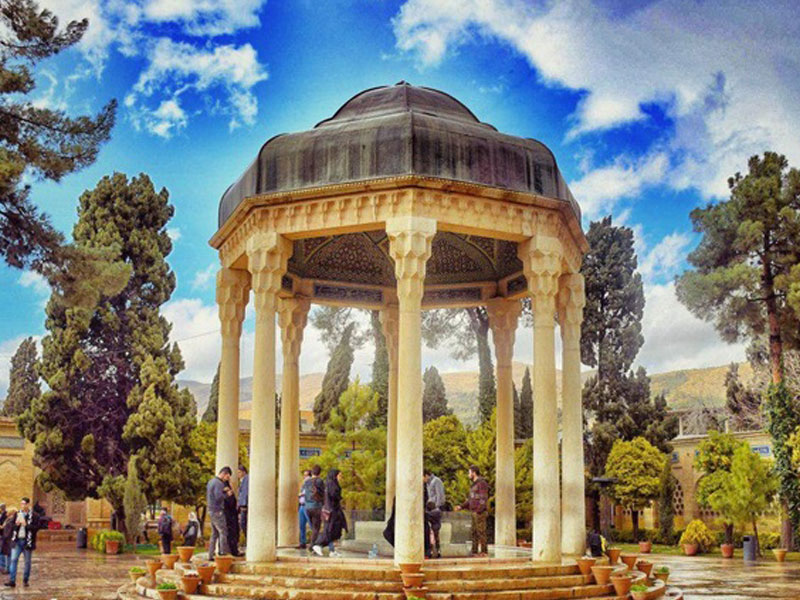
Plastic surgery in Iran Shiraz
The cost of plastic surgeries in Iran Shiraz is lower than other cities of Iran due to lower surgeon’s fee and costs of hospital, moreover, the cost of accommodation is lower than cities like Tehran and Mashhad which can in turn affect the overall cost that a patient should pay.
These are some of the best hospitals in Shiraz we have worked with:
- Dr. Mirhosseini Hospital
- Ordibehesht Hospital
- MRI hospital
Plastic surgery in Iran Tehran
The cost of plastic surgeries in Iran Tehran is higher than other cities of Iran due to higher surgeon’s fee and costs of hospital, further, the cost of accommodation is higher than cities like Shiraz and Mashhad which can in turn affect the overall cost that a patient should pay.
These are some of the best hospitals in Tehran we have worked with:
- Treata Hospital
- Pasteurno Hospital
- Moheb Kowsar Hospital
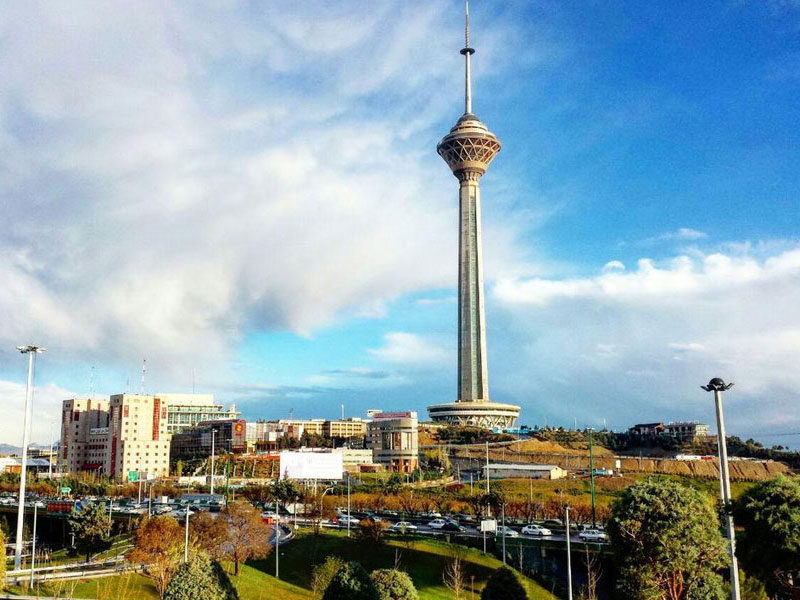
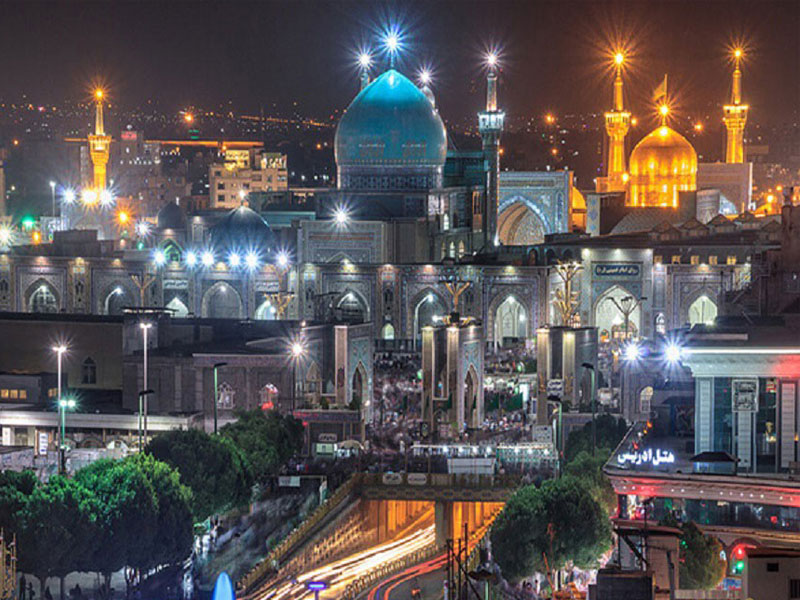
Plastic surgery in Iran Mashhad
The cost of plastic surgeries in Iran Mashhad is as high as Tehran but the quality is lower compared to Tehran and Shiraz due to high surgeon’s fee and costs of hospital, furthermore, because it is a popular religious city attracting flood of tourists yearly, the cost of accommodation is higher than cities like Shiraz and Tehran which can in turn affect the overall cost that a patient should pay.
These are some of the best hospitals in Tehran we have worked with:
- Razavi Hospital
- Bent Al Hoda Hospital
Best plastic surgeons in Iran
How to find the best plastic surgeons in Iran
If you are thinking about getting cosmetic and plastic surgery in Iran, you understandably want to find the best plastic surgeons in Iran.
The best plastic surgeon in Iran to perform your plastic surgery will have years of experience performing the exact type of procedure that you want. While there are many plastic surgeons in Iran, you will find that only a handful perform some of the plastic surgeries that you may need or want.
Here you can see the names of some of best plastic surgeons in Iran.
Best plastic surgeons in Iran
Ladies and gentlemen, you don’t have to worry anymore about getting old and wrinkled or if you have a skin disorder/injury, there are qualified surgeons in Iran that can make you as beautiful as you ever dreamed of!
These doctors have taken care of thousands of people and made their dreams come true.
Nowadays, plastic surgeons are probably the highest paid and the most popular doctors in the medical industry and it’s easy to see why.
Best rhinoplasty surgeon in iran
Dr.Nourahmad Latifi / Rhinoplasty surgeon in Tehran
Dr.Bastani Nejad / Rhinoplasty surgeon in Tehran
Dr Maryam mosleh / Rhinoplasty surgeon in Shiraz
Dr. Boroumand / Rhinoplasty surgeon in Tehran
Dr.Fattahi / Rhinoplasty surgeon in shiraz
Dr. B. Zamiri Clinic / Oral and Maxillofacial Surgeon
Dr.B. Khalatbari / Plastic Surgeon
Dr. Eyn Abadi Clinic / Plastic Surgeon
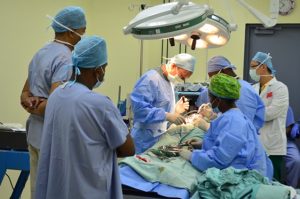
Best Liposuction & Tummy tuck surgeon in iran
Dr. Amir Mousavian / Cosmetic surgeon in Tehran
Dr.B. Khalatbari / Plastic Surgeon
Dr. Eyn Abadi Clinic / Plastic Surgeon
Best Hair transplant clinic in iran
Dr.Ebrahimi Clinic /Hair Transplant
Dr. Freidoun Poor Clinic/ Hair transplant
Best Facelift surgeon in iran
Dr Afshan shah / cosmetic surgeon in Tehran
Dr.B. Khalatbari / Plastic Surgeon
Dr. Eyn Abadi Clinic / Plastic Surgeon
Best Breast agumentation surgeon in iran
Dr. Amir Mousavian / cosmetic surgeon in Tehran
Dr.B. Khalatbari / Plastic Surgeon
Dr. Eyn Abadi Clinic / Plastic Surgeon
Hospitals
Ordibehesht Hospital Shiraz
Ordi Behesht hospital has been built with the help of many famous prroffessors and experts in Shiraz…
Mirhosseini Hospital Shiraz
It is established in 1995. With a successful history of healthcare services spanning several decades
MRI Hospital Shiraz
Shiraz is one of the main centers of surgery and treatment in Iran. Not only does it host hundreds of patients from southern Iran
Pasteurno Hospital Tehran
Pasteur no Specialized and sub specialized hospital was found by Dr. Karim Ghiasi in 1974…


